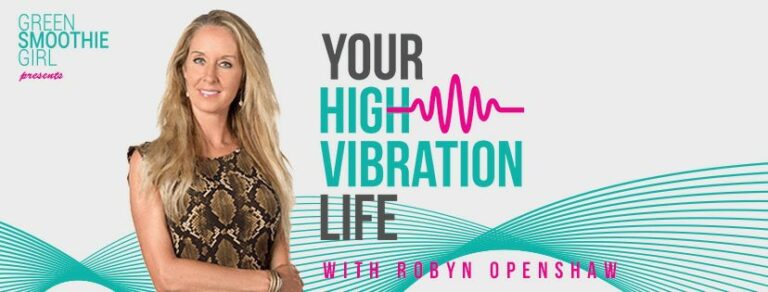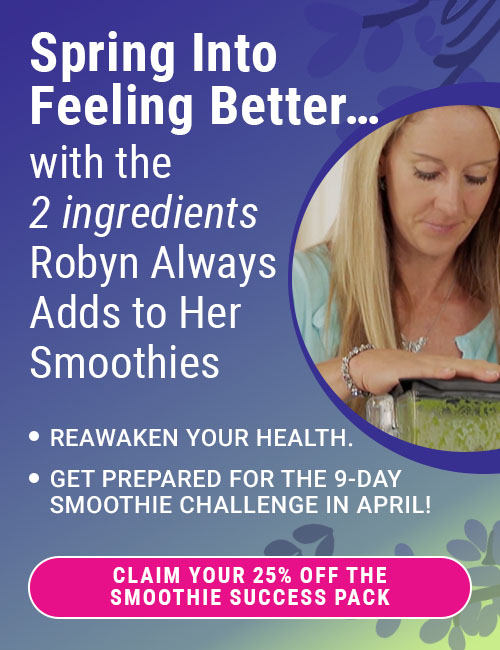Ep.29: How to Get Your Family On Board with Healthy Changes

Podcast: Play in new window
One of the questions I get asked most often is, “Okay, great, I’m in, I want to convert to whole foods but how do I get my partner or my kids on board?” Not only do we worry that they won’t support, we actually worry they might sabotage. So we want to make some healthy changes, but we want our family to come along with us. In this episode want to share with you the audio portion of a video I made for my 12 Steps to Whole Foods free video masterclass.
If you like this content, I have five other videos in the class. They are called 7 Foods That Fight Inflammation and Promote Healing and Energy, Rehab Your Gut with Food and Just a Few Dollars, Beat Your Food Addictions in Four Days Flat, Make 12 Simple Shifts In One Year For the Healthiest Year of Your Life and My Best Tips for Eating Super Healthy, Super Cheap. But for now, lets listen learn How to Get Your Partner and Kids On Board with Healthy Changes.
LINKS AND RESOURCES
Join my FREE Masterclass HERE!
TRANSCRIPTION
Speaker 1: Welcome to Your High-Vibration Life Podcast, with Robyn Openshaw, also known online as The Green Smoothie Girl. When you’re living your high-vibration life, you’re healthier in every way. You’re more productive, creative, peaceful, and loving. Your high-vibration life is calling, and now your host, Robyn Openshaw.
Robyn: Hey, it’s Robyn Openshaw here, and welcome back to Your High-Vibration Life. One of the questions I get asked most often, when I’m able to convince you or inspire you to make some healthy changes in your life, especially your nutrition, is, “Okay, great, I’m in, but how do I get my partner, how do I get my kids on board?” Not only do we worry that they won’t support, we actually worry they might sabotage. So we want to make some healthy changes, but we want our family to come along with us. I want to share with you the audio portion of a video I made for my Twelve Steps to Whole Foods free video masterclass, so I’m going to share that with you now. It’s called “How to Get Your Partner or Kids On Board with Healthy Changes.” If you like this content, I have five other videos in the class. Here’s what they’re about. Number one, “7 Foods That Fight Inflammation and Promote Healing and Energy.” Number two, a video on “Rehab Your Gut with Food and Just a Few Dollars.” The third class is called “Beat Your Food Addictions in Four Days Flat.”
Class number four is “Make 12 Simple Shifts In One Year For the Healthiest Year of Your Life.” The fifth one is “My Best Tips for Eating Super Healthy, Super Cheap.” But for now, I want you to listen to “How to Get Your Partner and Kids On Board with Healthy Changes.” You want to make some changes, but someone else who lives with you isn’t necessarily on board. You fear not being supported. You might even fear sabotage. I hear that, and I’m here to help. The fact is, when I made the shift to eating whole foods instead of the standard American diet, I had a husband, and I had children, and I faced the same challenges. I do occasionally have a husband ask me how to get his wife on board. Usually, though, 90% of the time, I have a woman asking me that about her man.
I believe this phenomenon of at least 90% of couples being the woman driving the health changes is because A, historically, and this is one of the most pervasive remaining traditional gender roles, women make the food shopping and food prep choices, and B, women are still, and always have been, primarily the caretakers for the family’s health. Our mothers did it, and our grandmothers did it. It’s what we know. So I may talk to you as if you’re a wife or a girlfriend or a grandma trying to get your man or your children, grandchildren, on board, but please know that I do this out of convenience. The same reasoning applies if you’re a man listening to this. Let’s go to what the real issues are that will really help us point to how to solve them. Let’s talk about the psychology of relationship issues that are at play here. First of all, your family fears you changing. Don’t talk to them about change. Don’t pull rugs out from under the people in your life. Don’t make big pronouncements. Change is a scary word.
For instance, if you decide, and I hope to help you decide this, in the Twelve Steps to Whole Foods course, if you join us, if you decide to feed your family more plants, more whole foods, don’t say, “Guess what, everyone? I’m a vegetarian now.” Don’t say, “We’re going to eat more healthy around here. You, you need to lose some weight. You, your grumpiness, I really believe it’s related to what you eat. We’re all going to get shipshape around here, and tonight, I’m serving an eggplant steak.” This isn’t just a recipe for failure. It’s also going to get you some ten-foot walls built against all your future efforts, so be sneaky. Be quiet. Be results-oriented.
If you tell them, tell them after the fact, after you’ve already made something really healthy and they liked it, although if you’re going to sneak healthy foods into a recipe, you have to know that they’re going to be watching from then on. But do sneak good things into their diet. Tell them only when it serves. Tell them only when they’re interested. Tell them the benefits of it to them in language they understand, and tell them in the 30-second version. Longer than 30 seconds is a lecture. Automatic tune out, if that person we’re talking about is between the ages of 12 and 22. No evangelizing. No self-righteousness. No superiority. Remember, if you just decided to make this change today, yesterday, you were right where they are. Your loved ones didn’t get any say about your new regime, so keep it on the down low. Second, make sure to leave every door open. Marriage is a long play. Raising children is a long play, and if you have a death grip on the big new change, you are almost guaranteed resistance.
Remember that you may not be 100% successful your first try at a sea change in the whole diet for the whole family, so whatever you do, don’t damage relationships over it. Make it so that your spouse or your kiddo can come back through that door later. Maybe now isn’t the right time for some things, for everything at once, but leave the love door wide open. Your love for your family is more important than a power struggle over a diet change, so make sure any conversations about food, health, or nutrition leaves all the doors open. “If you ever change your mind,” or “I’m here to serve if you ever want help,” or, “I’m learning so much that I’d love to share with you if and when you’re ready,” or, “I’ve got some ideas for you about why your tummy hurts all the time, when you want to know. I’m right here for you.” This is the language of openness, of giving. It’s the language of love, and it’s the language of leaving doors wide open.
I found, with my children, that I succeed when I talk to them about a difficult subject in a few steps. My husband of 20 years was the same. Drip the concept out to him, but don’t try to force him 20 minutes into the conversation to agree to my way of doing things. I learned to bring it up again gently a day or two later, and start with something that gives him power and choice, something that honors the other person. “What do you think would work,” or, “How do you feel about … ” So to sum up, remember that an effort to change the family dynamic is a long play and it takes patience and care. Relationships come first. One conversation at a time, one step at a time wins the race. Lead with why. Oprah famously said, I think she’s the one who said it first, “I will go to the ends of the earth for you, if only you tell me why.”
Some personalities in your family will smile and nod to your face. I call it the smile and nod. They’re not going to take you on head to head, just based on their personality, and if you’ve taken a heavy-handed approach, they’ll just undermine you subtly over time. They won’t say anything, but they’ll drop the mushrooms and zucchini noodles under the table at dinner rather than eat them rather than say, “Mom, what happened to the hamburgers?” Or they’ll manage to eat dinner away at a friend’s house every night that you cook, throw away the vegetarian spring rolls you send for their lunch and bribe their friends for Cheetos and a ham sandwich. This will be every bit as upsetting to you as the family member who says, “I’m not playing by your rules.” My point is, the passive-aggressive types can be more frustrating than the aggressive types, so just know your various personalities you’re dealing with. Know that the nutrition in your home is one of the most important things you’ll ever do for them. It matters. It’s worth it, so do it right.
My third point regarding the psychology of encouraging good change in the family is that we are all results-oriented. You are too. You wouldn’t take my 12 Steps to Whole Foods course with me if you didn’t have some results in mind, if I didn’t assure you that A, you’re likely to lose weight, if you have some extra pounds, B, your inflammatory conditions are likely to decrease, and C, you’ll get energy back that you had 20 years ago, so embrace that your spouse and kids are the same, so what’s in it for them? Luckily, there are a lot of benefits from them you can talk about. Connect any changes you want to make to their best interests and what they care about. I’ll give you examples of what I talk about in any conversation about shifts in eating from my kids. We talk about athletic performance. I have, a number of times, with every single one of my kids, talked about how soda, which we don’t have in our home, causes a depletion of oxygen in the blood, and when there’s less oxygen exchange in the blood, you have less speed.
This mattered to my daughters, who were both soccer players. We talk about academic performance, your ability to focus in school, to get a good test score. We might talk about their skin health and how that’s a reflection of the gut and liver health. All of the modern lifestyle diseases are connected to diet, so this is not hard. Just think for a minute, if you’re a lifetime member, you’re going to be in our Full-Support Facebook page, and I would love to hear your ideas there, what kind of conversations are working in your family? We all prefer small baby steps to big sea changes. Remember, you’re the same as them. You like making a small step rather than a huge change overnight, so honor that, respect it, be subtle, and show rather than tell, wherever you can. Employ what I call the drip method of parenting. Say it simply and without long lectures, but say it often.
Point out, occasionally, in a positive way, if your son’s acne improves because he’s been drinking a green smoothie every day, or if your daughter is running faster in her soccer matches in the first few months of your making healthier recipes. Always be positive. “You are looking so light on your feet.” “Your skin looks amazing.” You see the difference between, “You’ve lost weight.” “Your acne isn’t so bad.” So you see the positive ways of saying things rather than the negative, which brings me to the fourth consideration, which is in the psychology of change, instead of being heavy with things, ask your family a question they can’t say no to. How do you respond when someone says to you, “Can you help me?” It’s such an amazing question. I’ve noticed that, even if you’re in another country, because I travel internationally a lot, and a stranger you ask this of on the street who barely speaks your language, you ask, “Can you help me?” He’ll step, he’ll listen, and most of the time, he’ll try to help.
Asking your family member with some openness and some vulnerability and not a list of heavy expectations for their support is your best opportunity to get them behind you rather than against you. If you said, “I’m suffering with this, this, and this, and I want to do some new things, and I wonder if you’ll support me,” remember to reward any small sign of support. Whatever you reward, you’re going to get more of. I discovered with my youngest son, who loves praise, that when I’m in a difficult phase with him, that if I tell him that I notice some good behavior he’s done even a teeny bit of, and I comment on it, and I really comment on it, I pour love all over it, I give it oxygen, I find that I get a lot more of it. “I totally noticed that you’re doing your jobs without procrastinating. You are making my life so much better. Thank you,” and while you may not have bargained today for such a psychology lesson in this video training module, it’s important. In fact, it might be at least as important as the actual nutrition habits you’ll be learning.
As a former psychotherapist, when studying marriage therapy, one of the most proven findings in our field was that healthy, stable marriages had five to one positive to negative interactions. That is, the relationship will bear negatives, but only if there’s five times more positive and/or neutral interactions for every one negative, so many years ago, for this reason, I made a rule for myself that when my child walked in the house from school or from baseball for the first time that day, I didn’t allow myself to bring up something he was supposed to do and didn’t until I had spent five minutes loving him up and talking to him about his day. And this brings me to my final point, which is to have the humility to recognize that you’re going to have a period of proving yourself to those close to you, so here’s my last tip, fifth, remember something important. You will meet resistance for as long as your family, or even your extended family, sees this that you’re doing as a health kick. Okay? Health kicks are, by definition, temporary.
How many people do you know, you’ve seen them go on some kind of diet, health kick, they’re some kind of temporary vegetarian, they lose 50 pounds, only to gain it back? So this is the lens you’re being viewed through. It’s not personal. When you slowly, patiently put some things in place, and they stick, when you are in the long play enough to be trusted, and that takes time, you will enjoy far more credibility than you are enjoying right now, so prove yourself to yourself first. You won’t have a need to be loud and strident and dogmatic about what you’ve learned if it’s a deeply committed value that you hold. If you discover a healthy new habit, and then you use that new habit as a club to beat people over the head with, if you just use something you’ve learned as a club, you are going to fail.
My daughter, Emma, in the early days of her being a vegetarian, she’s been a vegetarian for, I think, nine years now, would sort of pummel people in class at school, and one day she said to me, “You’re not even a vegetarian, mom, but you convert people all over the world to eating a more plant-based diet,” and I said, “Yeah, huh. Why do you think that is?” And so telling her, I just let her kind of wonder, and I dripped on her a little bit about how when you beat people up about vegetarianism, you create no motivation for them to come your direction. Now, my daughter has learned that. She’s grown into that, and she has now, at the age of 21, influenced many people towards a more plant-based diet. If you’re quiet about it, if you have the patience to keep showing up the same way consistently and be willing to show rather than tell, nobody likes a loudmouth on a soapbox, you will win. You will win with your family. You will win with your health. You will win the long game, even if you lose some many games along the way.
Notice I’m using game metaphors rather than war metaphors, because we aren’t in a war with our family. I hope not. But you will earn their support, and actually you will become a role model, and you will earn their admiration. This may be what you care about, but there’s more. You will influence many for good beyond just your family. You will have influence beyond your wildest dreams. If you show up with respect for the agency, the choice of the other people in your life, with a respect for their getting a say in what they do and what they eat, and if you personally stay the course, and you don’t expect anyone to follow you, you start with first things first, look to yourself and make changes quietly and with conviction. Remember, you’re not a pied piper in the first 12 months of the change you make. No one’s going to follow you until they watch you for a while and they believe in the results of what you’re doing. When you play it out for a while, you win.
Your spouse, your children, they will follow only after they start seeing the results for you, so don’t be afraid to tell them the results. Not in a lecturing kind of way, but just in your legitimate enthusiasm. Then, when you are a true convert, a real health nut, you’ve proved yourself consistently to those around you, and they can see the difference in you, you will start to have massive impact on everyone around you. Trust me on this. You can have a far bigger impact than you ever imagined. My early efforts were met with resistance, sometimes even hostility, and trust me, I have learned the things that I’m telling you the hard way, by being too dogmatic and heavy-handed in those early days.
I justified it with, “But this is for their own good,” but later, the same people who were making fun of me, some of them have come to me 10 years later and said, “Hey, now I’m listening. Now I’m interested. Now I’m suffering, and so I’m looking for a different path. Can you help me?” This was possible only because I left the bridge unburned. I left that door opened. Some of what we’re doing for our kids or our spouse isn’t just for their immediate benefit. It’s for the fact that even if they completely reject it now, they have a knowledge base and an exemplar to fall back to 10 or 20 years later. I didn’t care at all about the health stuff that my mom and my grandmother did until I was 26 and my health started to seriously fail, but I had seen it done, and I knew where to go and what to do. Most people don’t have that kind of modeling in their life, so be in the long play of your relationships. Be in the long play of a health journey.
We didn’t create the problems overnight, and we won’t solve them overnight either, but making an effort towards a better diet is a huge act of courage and commitment, and it’s not optional. It’s so, so necessary. Remember, we all want someone to follow, someone a step or two ahead of us. Not someone on a pedestal. You don’t need to be on a pedestal, and you don’t need to be perfect for others to learn from you. I don’t want to be on your pedestal, and I’m really real about my own struggles and my own two steps forward, one step back path, and my own addictions and imperfections. We don’t relate to anyone who is arrogant or self-righteous or heavy-handed. We don’t follow because someone yelled loudly. Be the change. Be the opposite of that. Respect and honor choice and a path that allows for gradual improvements, and a path that allows for individuality, but try not to miss opportunities to influence others for good. Your life depends on you finding that narrow path between being part of your family and community traditions and finding better, healthier ways. I know it’s possible because I’ve done it.
The length of your life depends on it, but I bet you’d agree with me that the quality of it matters even more. The quality of your life, for however many years you’re here with us, depends on your eating healthier, on your modeling better habits to those around you, than those dictated by no one better or smarter or more important than two profit industries who have destroyed our national health, the pharma-industrial complex and the food-industrial complex. What I teach in 12 Steps to Whole Foods, if you’re considering joining us, has everything to do with your quality of life from this day forward. The 12 principles I teach in it and the hundreds of small tips and bits of wisdom and recipes I share in it are what saved my own life and my son’s many years ago, and they’re what I credit with our good health now. Join a growing community of whole foods lovers who are leaning into 21st-century ways of returning to health.
So there you have it. I hope you learned something about how to get your partner and kids on board with making healthy changes. If you would like the entire free video masterclass, you can watch it by going to greensmoothiegirl.com/episode29. Sign up, and you can watch all six videos for free.














No comments found, but you can be our first!